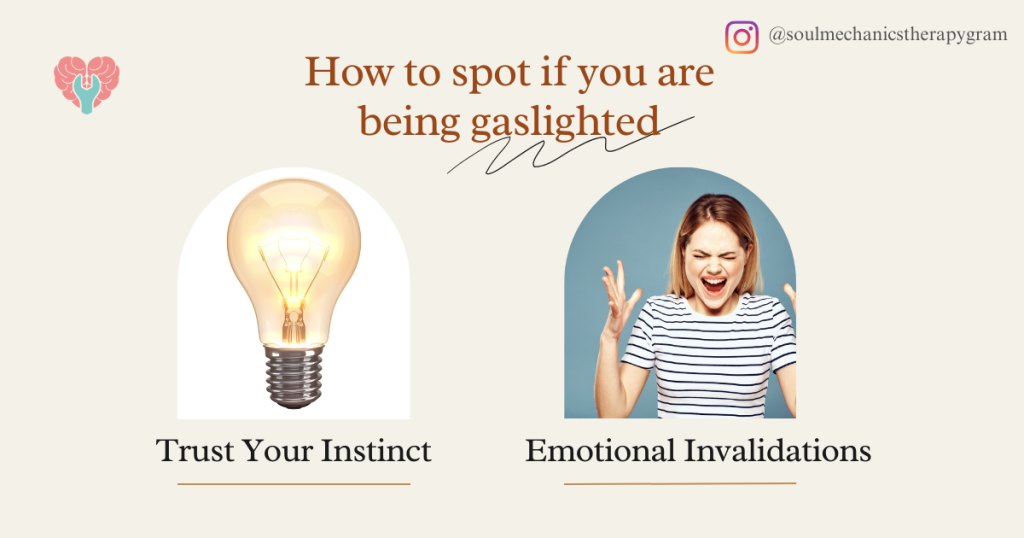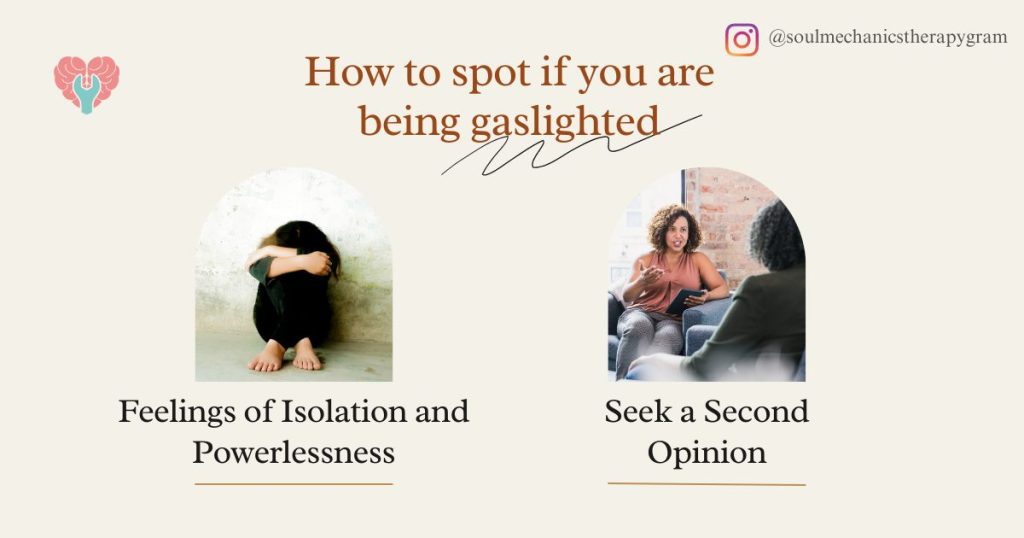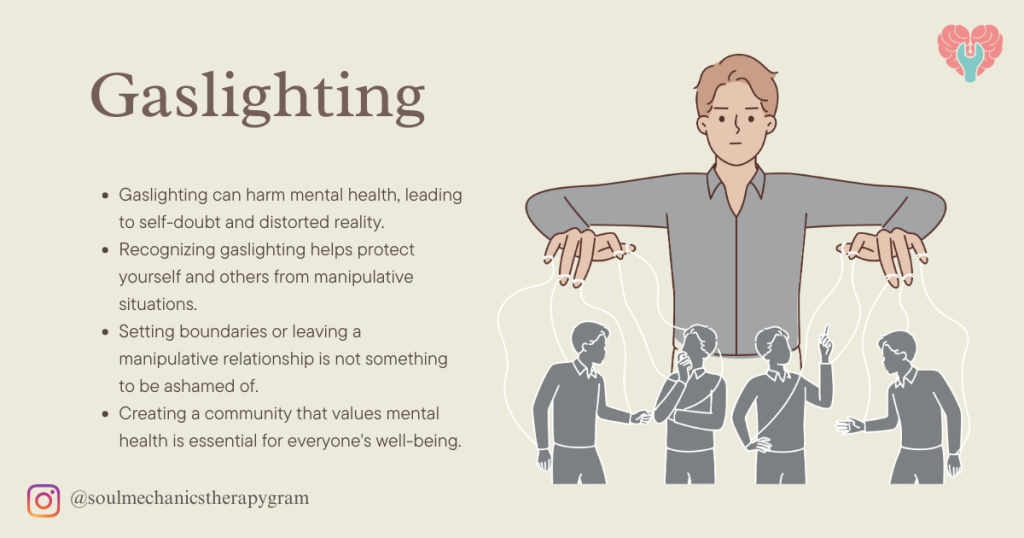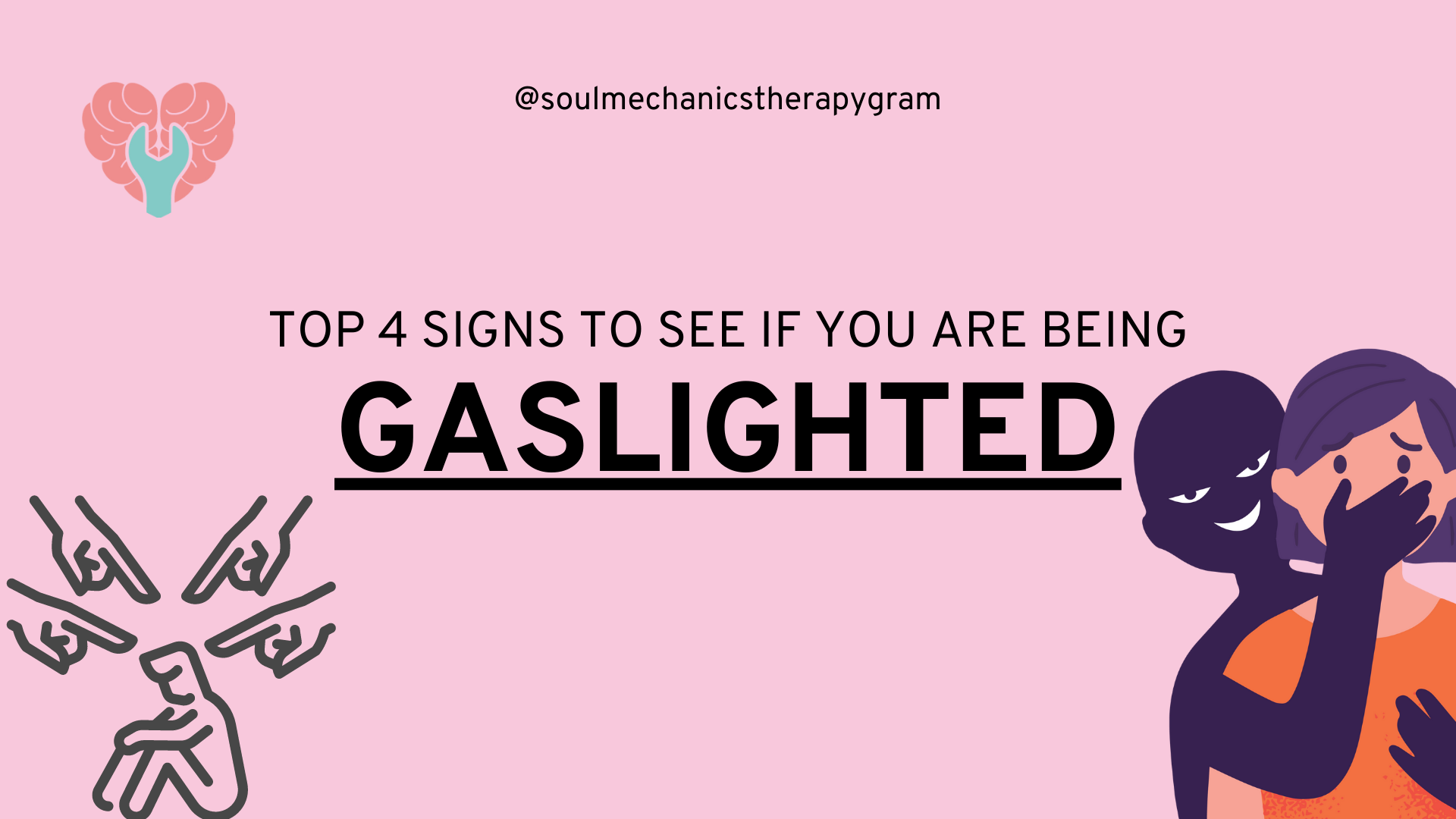Gaslighting, Top 4 Signs To Watch Out
Gaslighting, Top 4 Signs To Watch Out
Gaslighting is a phenomenon that we may encounter at some point in our lives, regardless of our familiarity. We're here to give you some helpful pointers on recognizing gaslighting and comprehending its effects.
We define gaslighting as a subtle manipulation tactic employed by the gaslighter, who is often referred to as the predator, to make the victim doubt their reality, perception, and cognitive abilities. The gaslighter's primary objective is to exert control and gain power over the victim's thoughts and beliefs. Thus, gaslighting can severely impact victims causing them to become more dependent on the gaslighter in some cases. Dependence on others can lead to the loss of independence, both mentally and physically, for the victim.
Here are 4 top signs to look for to check if you are being gaslighted.
HOW TO SPOT SIGNS OF GASLIGHTING

1. Trust Your Instinct To If you feel someone is gaslighting you
The first step in recognizing gaslighting is to trust our gut. It is important to be alert and observe when we have a feeling that something is not quite right or seems suspicious. It is vital to give our feelings proper consideration, as our intuition can be remarkably potent. If we have a suspicion that someone is manipulating us, it is important to keep a close eye on their words and behaviour. Furthermore, it is important to think about our emotional state after each interaction with this person. It can be helpful to keep a record of our interactions as it provides evidence of our experiences and validates our feelings.
2. Gaslighters often brush off, minimise or accuse your feelings
A common tactic employed by gaslighters is to invalidate our emotions and thoughts. We might recognize phrases like "You're too sensitive" or "Why are you making such a big deal out of it?" if we've experienced gaslighting. Essentially, they imply that we are "wrong" to feel a certain way. For instance, when we express discomfort to the gaslighter about something they've done, they dismiss our feelings, refuse to acknowledge their fault, and instead claim that the issue lies with us for overreacting. This invalidation of our emotions can significantly contribute to self-doubt and diminish our self-confidence.

3. Gaslighters often make You feel alone, isolated and powerless
Predators often isolate the victims from their original social connections. Gaslighters do this so that they can manipulate the victims more easily because victims do not have much chance to ask for a second opinion. Additionally, this hinders other people from aiding the victim since they may not be aware of the situation. Some examples include: taking away communication tools such as phones or computers from victims; and talking bad about the victims towards the victim's acquaintances so they will stay away from the victims.
4. Seek a second opinion from trusted people to see if you are being gaslighted
When we are being gaslighted, it can be challenging to see the situation. Reach out to trusted friends, and family members who can provide an objective perspective. We can also turn to professionals such as therapists or psychologists for clarity and help. Discuss our concerns with them and listen to their insights. They can help validate our experiences and provide guidance in navigating the manipulation. A tip here is to try to avoid mutual acquaintances when we are discussing this matter, as mutual acquaintances (especially those who are very close to our suspect) might have a bias that is unable to evaluate the situation objectively.

Conclusion
In a nutshell, Gaslighting is a type of manipulation tactic that can be very harmful to one's mental health. It can affect a person's self-esteem, causing self-doubt and distortion in reality. By knowing signs to spot gaslighting, we can protect ourselves and help others to prevent being in such unpleasant situations. Remember, every human being deserves to be respected, setting limits or getting out of a manipulative relationship is not something to be accused of. Together, let’s create a community that celebrates the importance of mental health.


Comment (1)
thanks for info